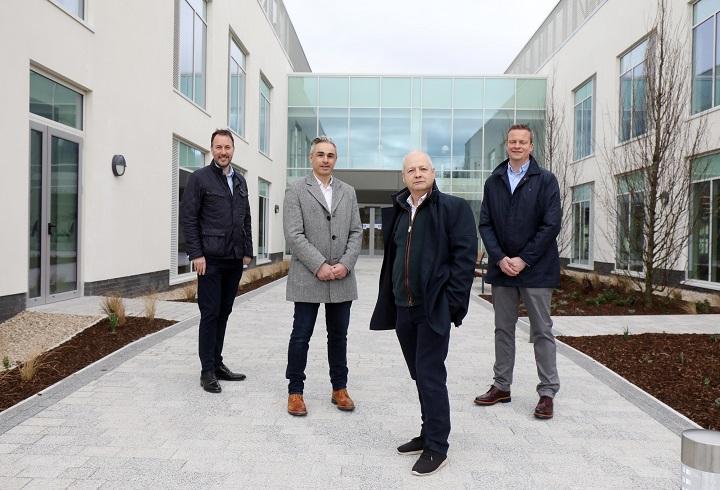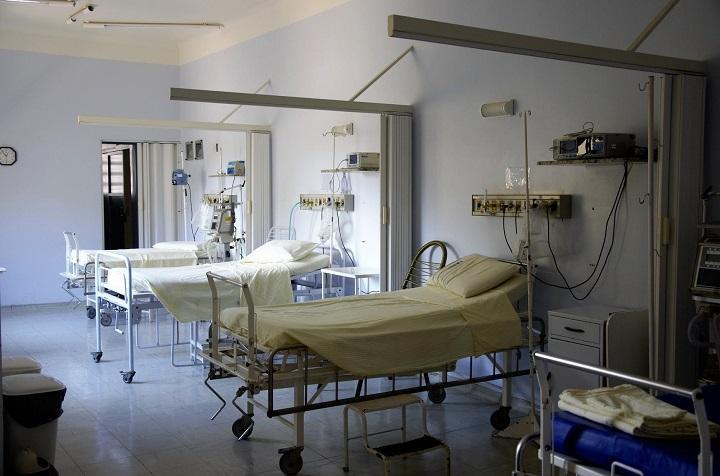
With an increased use of technology, the rise of social media giants and a general societal fear that we are transcending further into an Orwellian dystopia, data expert Peter Keeling discusses with Sync NI his thoughts on the sharing of healthcare data.
In April 2020, Belfast-based Diaceutics was able to secure data for 11 million positive Covid-19 patients in the US.
Peter Keeling, Founder and Chief Executive Officer of the data testing firm said: “All of our data is anonymised. I don’t need to know who the people are testing positive, I just need to know if they have tested positive. Now we can match that with other diseases that they might have today, or they might indeed get tomorrow.”
But what exactly does gathering this data mean?
Peter said it’s all about “meaningful analysis”.
“It’s not good enough to just have ‘cool insights’,” he continued. “So what, if it doesn’t help patients?”
The CEO added that at Diaceutics, they have been cross-referencing positive Covid cases, to see which of those individuals also have cancer, and thus whether their cancer accelerates or deteriorates at different rates; whether their Covid infections are more severe and so on.
That data will be followed for two to three years.

RELATED: Diaceutics offers data collab opportunities at Dataworks Belfast
Peter believes this shows the importance of ‘data-for-good’, as he coins it, and continued to tell Sync NI why those in the data industry “have a responsibility to recognise first of all that data privacy is critically important”, as the general public become increasingly wary about having their personal details known amidst the panic of the pandemic.
Around 20 million people in England are in the dark over plans to share their GP medical records with an NHS Digital database, according to a study by not-for-profit consumer watchdog Which?
The UK government has now delayed the General Practice Data for Planning and Research (GPDPR) programme (which was quietly announced by ex-Health Secretary Matt Hancock in May this year) for a second time.
With the coronavirus crisis sparking conspiracy theories, heightened doom-scrolling, the vast distribution of fake news and constant social media debates, full transparency is needed when it comes to who people are sharing their details with and why.
Otherwise, they undoubtedly have raised suspicions.
“Whether it's a Facebook or a national health service issue, it's an issue,” Peter commented.
“So we have to come up with a response that demonstrates that we are handling this patient information sensitively and sensibly.
“I do believe that we can use healthcare data for good. I have seen it and I'm observing it. I am pretty sure that we at Diaceutics are making an impact by getting patients tested earlier and tested better, and we're not talking 10 patients here, we're talking tens of thousands of patients.
“But equally, we have to make sure that we have all the right protections in place for that.

RELATED: Diaceutics finds sharp downturn in US cancer diagnoses due to COVID-19
Peter talked through the stages of data anonymisation processes that Diacetics goes through when bringing in external data, including complying with GDPR privacy rules (HIPAA in the United States), applying a solution to make sure nothing has been missed in terms of making that data anonymous, and finally, hiding that information “in the utmost privacy” from the outside world.
“It's unfortunate that I'm not sure everybody in the healthcare data world is approaching it with that level of rigour,” Peter noted.
“And so for that purpose. I actually believe that the regulation of data and data management is a good thing.
“Wouldn't it have been helpful if Matt Hancock’s statement wasn't, ‘I'm making a unilateral decision to open up national health service data’, but that there was a regulatory data standard, that turned around and said, ‘we have made sure that any data being released for the purposes of medical betterment has been handled in the utmost way’?”
Instead, Peter believes the announcement “missed the concern at the bottom of it all, which is basically ‘you can’t just open our data up, who's going to control that, who's going to get access to it?’”
“We work with some of the largest pharmaceutical companies in the world,” he continued.
“They are not going to work with us if we mishandle data. So our business is still dependent on managing that data in a responsible way.”
As there are health regulators that regulate the Covid-19 vaccines and medical precautions the public should take, Peter believes something similar should be applied to data management.
“It's not just GDPR, that's a bit of a blunt instrument. I think we need healthcare to get regulators that say ‘you can use it this way, you can't use it that way, you have to protect patients.”
There are discussions at a European level on these issues, but the UK’s stance is still uncertain because of Brexit, along with all the pandemonium of Covid-19.

RELATED: Cabinet Office beefs up cyber training by nearly 500% following Hancock scandal
It could be a case that different types of data need different, specific regulators, such as an individual unbiased organisation for healthcare records, but also a separate one for social media data, another again for criminal records, and so on.
However, Peter did conclude that if he were registered with a GP practice in England, he would choose not to opt out of the GPDPR programme, saying he would also encourage his family and friends to not opt out either.
“Whilst I accept that there is a risk - there's a risk in everything. There's a risk in crossing the road, there's a risk of driving down the road,” he mused.
“Consider not just at a national health service level, but regionally, we are all sitting on this enormous - I'll call it a goldmine - of important information that can help us individually, both in managing our diseases and that of our families’.
“I think government and others have a responsibility to explain better, and that's the problem. They make these bold, grand statements, one would almost think by way of distraction. But the intent is right. And I do feel that there's probably real value in people staying opted in.”